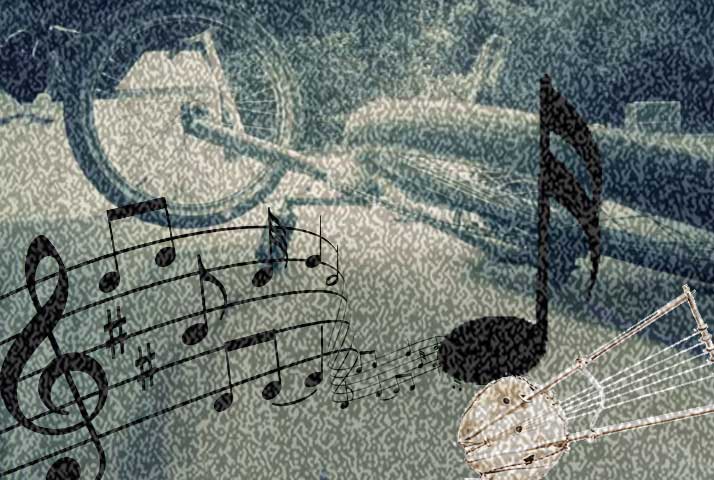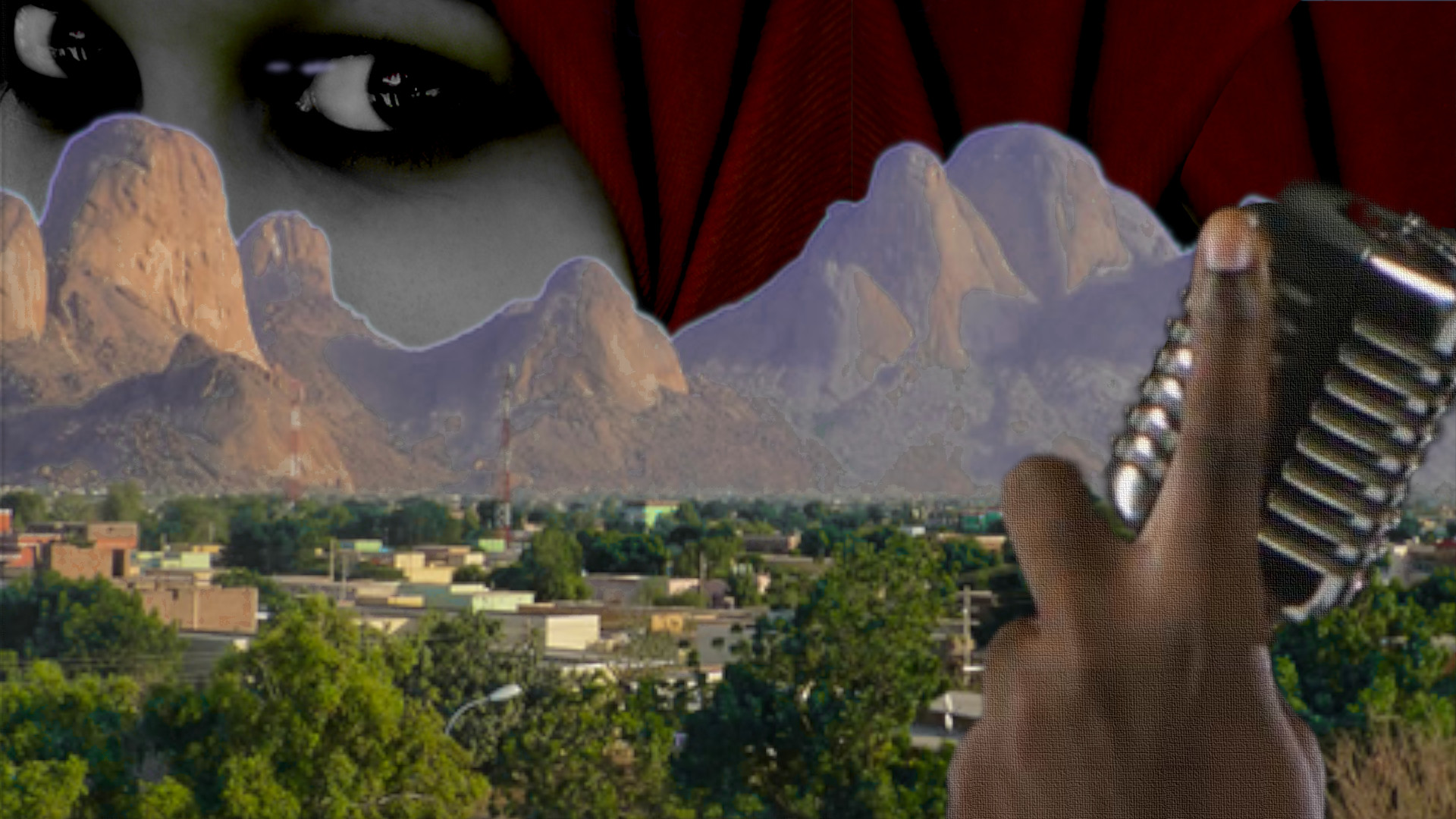The Beauty And Complexity Of Diversity
 Alem was not even ten when he joined the Tzebah (meaning dawn—a name given to the young of the ELF). Tzebah was a project set up to indoctrinate the young generation with Marxist ideology and was administered by the Union of Eritrean Youth under the Eritrean Liberation Front (ELF); and Marxism is an atheist ideology that considers tribal and ethnic adherences as a form of false consciousness that conceals the true nature of class struggle in societies.
Alem was not even ten when he joined the Tzebah (meaning dawn—a name given to the young of the ELF). Tzebah was a project set up to indoctrinate the young generation with Marxist ideology and was administered by the Union of Eritrean Youth under the Eritrean Liberation Front (ELF); and Marxism is an atheist ideology that considers tribal and ethnic adherences as a form of false consciousness that conceals the true nature of class struggle in societies.
Tzebah shaped Alem’s consciousness. He therefore grew to abhor tribalism, ethnicity and religion. However, he abhorred the EPLF more, because it involved a foreign element (TPLF) in the Eritrean internal conflict, when it collaborated with foreigners (Tigrawot), and killed fellow Eritreans. “This is an unforgivable crime”, he used to say. “Had they chosen the path of democracy right after independence, I would have forgiven them my support, but of course I would not forget”, he once confided to me. I was always trying to cool him down. But, frankly speaking, I was confused myself.
Because of the ambiguous nature of the EPLF-TPLF relationship, we were all left to our wild imaginations. I was wondering if the EPLF (read Esaias) was planning for a greater Tigrai or if it (he) had plans to live in Eritrea alone, without us. I am glad that it (he) proved me wrong in the former, and I am sorry that it (he) did not fail me in the latter.
Now back to Alem.
He was living next door to me. I was elder than him, and he used to seek my advice. We socialized very often and we talked about everything (Arabic-Tigrinia, Islam-Christianity). We shared a common concern: the unity of our people. I loved and I still love him for his purity and open mindedness.
One day, in one of my conversations with him, he expressed his hatred towards two Eritrean youngsters of his age in the neighborhood. He said, “I hate the khalids, malids and habeebs”, he was referring to the two youngsters (Khalid and Habeeb).
I asked him, “why?” And he answered, “Because they speak Arabic.”
I responded in a form of a question. And with an unmistakable disappointment in my voice, I asked again, “do you hate someone because he speaks Arabic? What happened to you? Are you becoming like the guys from your village?” (This is a story for another day).
He calmly answered my questions assuring me that he was the same Alem I knew and that I got him wrong and that he did not hate people because they spoke languages. He just could not understand why they spoke Arabic with each other. He wouldn’t mind them speaking Arabic with others and, besides, “what was wrong with their own language,” he wondered.
Then, I wanted to know, what he thought their language might be. And he replied, “Tigrinia”. “Why do you think that,” I asked him once again and he answered, “Because they are Jeberti.”
It is only then, that I was able to identify him with those who think that the language of an Eritrean is decided by his or her tribal or ethnic origins. In another words, if you are a Blin, then your language is Blin; if you are a Saho, your language is Saho; if you are a Jeberti, your language is Tigrinia, and so on and so forth.
“This mostly true in the Eritrean countryside,” I explained to him. “But, in the Towns and cities, the situation is completely different. For instance, you may come across an Asmarino who is Saho by origin and whose language is Tigrinia, or a Kerenite who is Blin by origin, and who speaks Tigre for that matter. Would you hate someone for being Bin Amir and having Tigrinia as his language?” I asked.
It was not so difficult for the open minded Alem to see the absurdity in his statement. However he was not ready to give up. Not yet.
“Okay! Okay! I get it now. But,” (he stopped there).
“But what,” I asked. And he responded, “(n’mentai ahatom ye shefafnu)”. (Literally meaning: Why do they cover (veil) their sisters). He wandered why Muslims make their sisters wear Hijab, the headscarf that Muslim women wear.
At that point, the conversation turned to be more interesting and I couldn’t figure if he was against the Hijab or against them dictating it on their sisters. Yet, I decided to provoke him. So I demanded, “Why are you having a problem with it? And mind you, they did not cover your sister and why are you so worried any way? (Entay a’eteyuka, ma’as Haftikha shefenom). And don’t you see how ridiculous it is to hate someone because his sister is dressed in a way you do not like!”
He didn’t say anything. We were both quiet for some time and I understood that he was not willing to continue the conversation.
After a while I broke the ice. I told him that I just wanted to provoke him and by no means did I intend to scare him to silence.
“You see Alem, they are Muslims”, I continued, “and If you really want to know why, just imagine yourself in their place and choose between abiding by the code of conduct your religion wants you to follow or simply do otherwise to please a fellow citizen. What would you choose?” I asked.
“Honestly speaking, I would choose to follow my religious teachings,” he told me. “But, I do not think that this is a religious matter. Because if it is, why are your mothers dressed differently? I know they wear Luwyat or Belai,” he added, apparently referring to a traditional Muslim women’s dress in some parts of Eritrea.
The conversation became more and more interesting. Had he been a Muslim, it would have been relatively easy to explain. But, still it would not be so difficult, even for a Christian like him to understand. I just had to try it the other way round.
“My dear, Alem,” I started, “If, by any means, you are suggesting that the Hijab is alien to Eritrea, let me tell you that both Islam and Christianity did not originate in Eritrea (They trace their origins back to Mecca and Nazreth respectively. And if you think that this makes them alien, you should as well suggest that we give them up altogether. And, in any case, the first Christian Eritreans were the Orthodox, and then came Catholicism and the Protestantism. And they were followed by denominations (The Pentecost, The Jehovah Witness, etc). Do you think that this change, or conversion, happened smoothly? Do you really think parents were happy to see their children convert?
Islam is by no means different. The first Moslems were the Sufi (The Khatmia), then, came the the Ansar Al-sunna. I remember, when they first came to my hometown. I was a child. The Khetmia tried to chase the Late Shiekh Mohamed Saleh, who introduced Wahabism in Keren, out of town. Children were ordered to throw stones at him. He survived, and so did Wahabism. And then came the Muslim brothers, whose Hijab you have difficult to live with. I have never met an Eritrean Shia Muslim. But, if, by any chance you see an Eritrean beating himself to bleeding in the name of Islam, he might be a newly convert Eritrean Shia, a possible by-product of the Iran-Isaias connection. This being the case, I believe you cannot avoid being labeled a polarized Christian, if you keep worrying about the spread of Islam in Eritrea, while remaining less or not worried at all about the spread of Christianity.
“Things are now getting clearer to me. I never thought of it that way,” Alem admitted. He went on talking about his ignorance and that he was grateful for having me as a friend. But he was not totally convinced. I could tell that from the way he talked.
“If it is all about religion, as you are saying,” he proceeded “don’t you think that it is discriminatory to impose Hijab on women and nothing on men?”
I could not understand if he meant some kind of a dress code for men. But, his explanation came faster than my question.
“I really do not have a problem with Nasir and Mohamed if they choose to control the sexuality of their female family members. What makes me sick is to see someone womanizing and joining us in nightclubs while keeping his own sister out of reach,” he added.
“This is not something that I even consider to defend. It is pure hypocrisy and it is part of human behavior. You can see it in different forms and in areas other than religion. The youngsters you hate, are people with a double moral. They like to see their sisters adhere to a moral value they do not want to abide by. Or, probably, they are just young and stupid. I advice you to feel sorry for them and not to hate them.” I responded.
“Besides, neither your background,” I continued, “ nor your current state of mind qualifies you to hate because of the reasons you mentioned. So, what is all this about? Is it because it hurts to see the “young and the beautiful” abandoning you to the two cute, articulate and elegant youngsters we know.”
“That is another extra reason for me to dislike them,” he concluded.
Dear reader, this is not a story that I made up. It is as real as I am and as the individuals mentioned are, but the names are not their real names.
In conclusion, I would like to say, that, only when we share our fears and our prejudices and educate each other with our diverse identities, only then, we learn to be more tolerant.
Tolerance and patience are what we need in order to be able to deal with our diversity.
Your comments are welcome.



Awate Forum